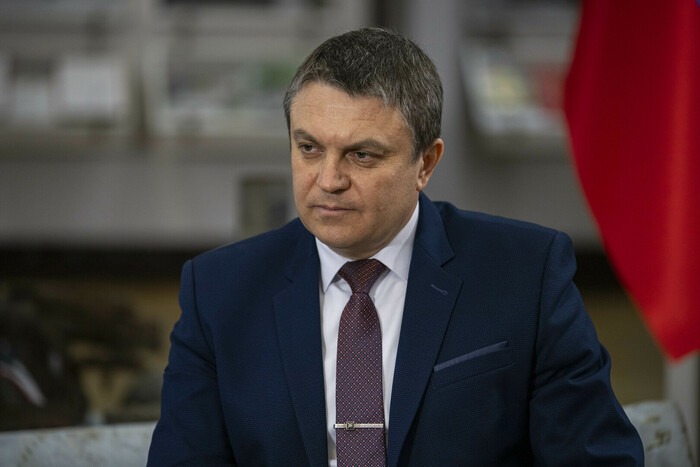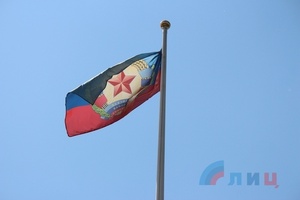
Face-to-face meetings of Contact Group to have favorable impact on talks - Pasechnik
Going back to offline meetings of the Contact Group might enhance the outcomes of the talk, said LPR head Leonid Pasechnik in an interview to Russian TASS News Agency.
"Contact Groups meetings were initially held in person. Videoconferences took over due to the unfavorable epidemic situation, they provided for the continuity of the Minsk talks. The return to offline meetings will just boost the effectiveness of the negitiations," he said.
"Our representatives must be able to enter a country, accommodate, take part in the talks, have personal security guarantees and protection from any possible provocations coming from any side."
Pasechnik emphasized that Minsk has been such a location from the very beginning.
"Belarus has always behaved in good faith: they only provided the ground for the talks, never interfering in the talks themselves."
No delegation ever complained about the organization of the talks, he said, including the Ukrainian one.
The Ukrainian government launched the so-called anti-terrorist operation against Donbass in April 2014. Conflict settlement relies on the Package of Measures for the Implementation of the Minsk Agreements, signed on February 12, 2015 in the Belarussian capital by the Contact Group members and coordinated by the Normandy Four heads of states (Russia, Germany, France and Ukraine). The UN Security Council approved the document by Resolution No 2202 of February 17, 2015 and called upon the parties to ensure its implementation.
The document provides for comprehensive ceasefire, withdrawal of all heavy weapons from the contact line, starting a dialog on reconstruction of social and economic ties between Kiev and Donbass. It also envisages carrying out constitutional reform in Ukraine providing for decentralization and adopting permanent legislation on a special status of certain areas of the Donetsk and Lugansk regions.
To facilitate the work of the Contact Group, four working groups were set up under its aegis to deal with issues of security, politics, return of internally displaced people and refuges, as well as with social, humanitarian, economic and rehabilitation issues. *t*s



